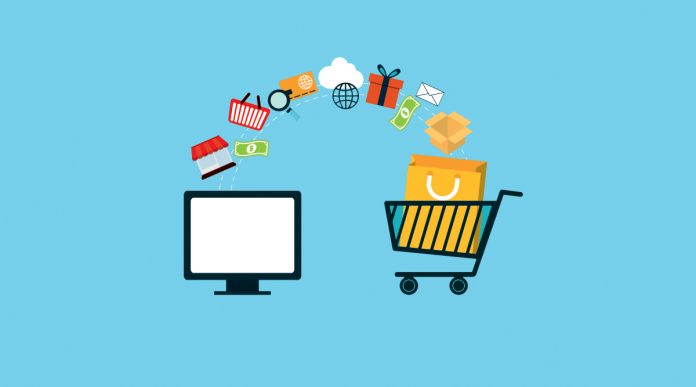ISLAMABAD: Business to consumer E-Commerce (e-B2C) is on the rise in Pakistan as 571 local e-commerce merchants were already accepting payments through banking channels as of end-June 2017, with cumulative annual domestic sales worth Rs 9.8 billion.
In addition to that, transactions worth Rs 20.7 billion were carried out by consumers on international e-commerce websites, stated State Bank of Pakistan in its quarterly report while quoting latest e-commerce data.
According to the report, growing incomes, coupled with advancement in communication technology and expansion of internet access and branchless banking, had been propelling the sector forward. Various benefits such as comfort of shopping from home, wider selection variety, ubiquity of 24×7 service, and interaction possibilities like reviews to make an informed decision were the main sources of attraction to the consumers.
Businesses, meanwhile, are venturing into digital platforms to increase their reach, the report added.
“Additional benefit comes from low operating costs and flexibility in inventory management (based on feedback, recommendation, and just-in-time mechanisms) which results in increasing margins,” the report said.
Thus, a range of businesses has shifted to this medium to cater to the growing demand and to remain competitive in the changing market environment, it added.
This is an encouraging trend as it provides a potential to document transactions that would otherwise not become part of the formal retail segment. However, a significant volume of transactions is carried via Cash on Delivery (COD).
Pakistan Telecommunication Authority (PTA) in its annual report for FY17 highlighted that more than ninety percent of online orders were fulfilled using COD during the past fiscal year.
Businesses are also hesitant to offer online payments options given considerable upfront development costs, as this involves expenses on reliable and secured infrastructure, negotiating contracts with payment gateway providers. In this situation, COD allows a cheaper alternate, it added. From the consumer perspective, a preference for cash and low financial literacy accentuates the need for COD.
Even those customers who are financially literate feel hesitant to share their personal information online due to security concerns.
A second major issue that keeps consumers from adopting towards advance payment mechanisms is the fear that their products might not be delivered, or they might be different in nature or quality from the items mentioned online.
The report says, payment on delivery covers their risks in this regard, adding that furthermore, absence of a common payment platform that could integrate mobile wallet, debit/credit card, and bank accounts leads to consumers facing inconvenience and higher charges.




